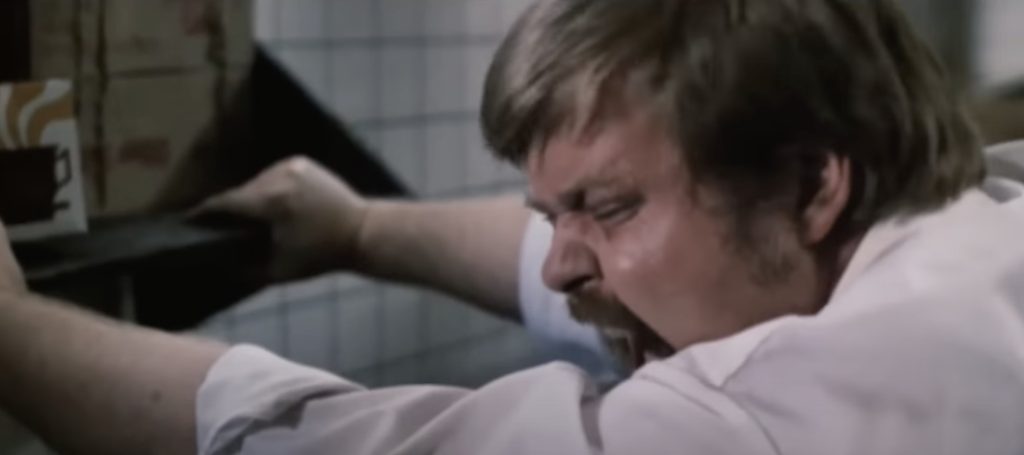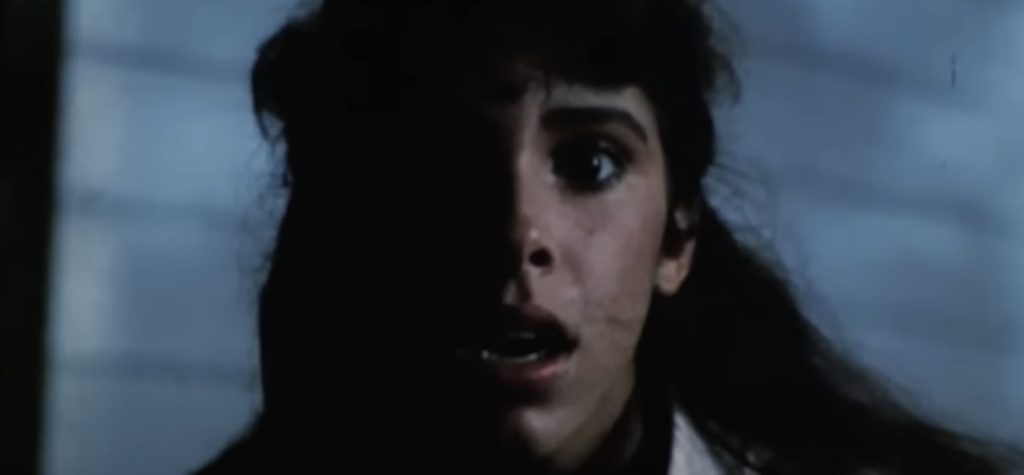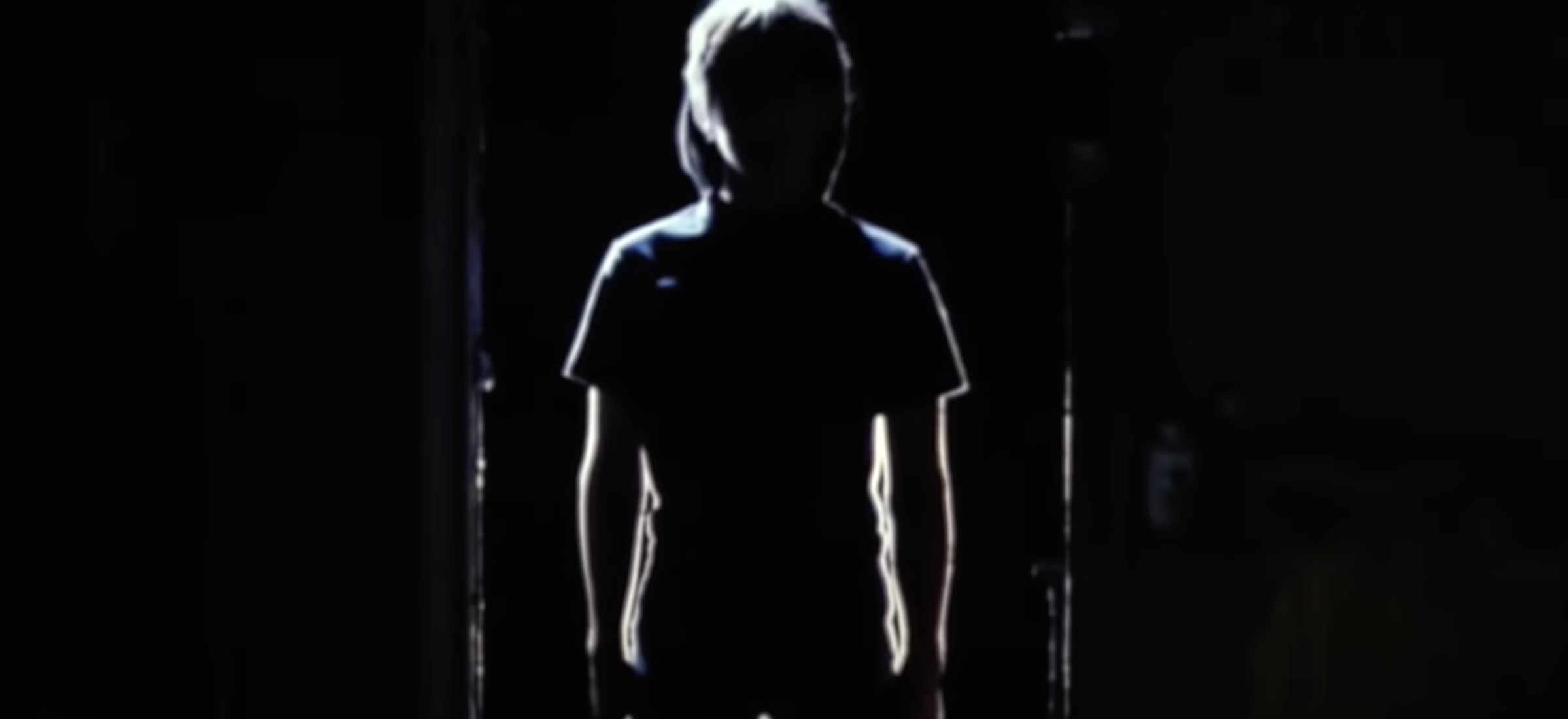“I’m so glad you love our dirty little movie”. Felissa Rose’s words to me about Sleepaway Camp sum up just about everything you could say about her and the film. She is joy, a perfect ambassador for all things indie horror. And Sleepaway Camp is a dirty movie. It’s what makes it fun.
- Directed by: Robert Hiltzik
- Written by: Robert Hiltzik
- Starring: Felissa Rose Jonathan Tiersten. Karen Fields
Putting the Camp in Camp.
There isn’t a single moment in Sleepaway Camp where a sane acting choice is made. Since it works with the overall tone, we’ll call it stylistic choices. Aunt Martha fully establishes what kind of movie this is going to be. She’s then quickly followed up by the most disgusting camp staff ever. I mean visually, morally, the works. This is a movie filled with people you want to see die.

Which works out well, since this is a camp slasher. Most of the people here are bullies designed to torment Angela and friends, and then get murdered for it. The kills are legendary; both creative and mean-spirited. Exactly what you want in a slasher.
But that’s not really what we are here to talk about. If you don’t know how Sleepaway Camp ends, skip this entry. It’s impossible to get into what makes this movie different without talking about that ending.
What Makes Sleepaway Camp Different- ALL The Spoilers Ahead.
Sleepaway Camp ends with the reveal that the killer, Angela, is Peter, the brother we thought was killed in the intro sequence. Zany Aunt Martha has forced Peter to be raised as a girl for eight years, and now they have finally snapped. It’s a great reveal, with naked Angela covered in blood and an unforgettable expression.
Shocking and exploitative in 1983, I’m sure the cast and crew had no idea the conversations that would come about surrounding their microbudget movie. To some, Angela is an icon; to others, a deeply offensive and harmful stereotype.
There is no one clear read on Sleepaway Camp’s themes. But there are a few compelling arguments on either side, or rather on all sides. I don’t think this quite that simple.
The Debate
I can certainly see merit in finding harmful elements in the movie’s portrayal of trans characters. The idea that a trans person would snap after being compelled to live an inauthentic existence is contrary to so many people’s real-life experience. It also plants the idea that deep down, people who are trans may be dangerous. That’s always bad.
It also floats the idea that being exposed to even a loving gay relationship could cause childhood confusion and trauma. Which is contrary to how, well, queer this movie is. There are a lot of men in very small shorts who spend a lot of time being very comfortable with each other. Also, the hetero men are shown as creepy pedos, so it’s not like there is a clear good men/bad men situation here.
The Other Side
There is also an argument to be made that Angela is not trans. She didn’t choose a feminine gender identity; it was forced on her. So, any trauma or mental instability is the result of a different kind of child abuse. It’s still rooted in gender presentation, just in a very different way. This read is much more LGBTQ friendly, with the messaging more aligning with the need to let your children be who they authentically are.
Where this gets tricky is in the flashbacks to her father’s relationship as Angela grows closer to Paul. Is Angela reliving trauma from her childhood, or is she deeply afraid of being outed as she experiences a similar relationship?
The Other, Other Side.
There is also a more neutral middle ground, where the filmmakers didn’t have any particular intent other than to make the most shocking, boundary-pushing twist possible. Intent is not impact though. Whatever messages audiences take away from the movie have little to do with what the directed planned. That’s fine; death of an author is a valid method of critique.
For that reason, I can’t tell you how to interpret Sleepaway Camp’s ending and themes. It was made during a different time, with a different understanding of gender identity and sexuality. That doesn’t excuse any negative impact it may have on modern audiences. If viewers chose to see Angela as an avenging icon, that’s valid too. There are a lot of satisfying deaths in Sleepaway Camp.
Slasher Elements
Sleepaway Camp is, in a lot of ways, everything a good slasher should be. It’s uncomfortable to watch, tense, and full of good kills. It doesn’t shy away from killing kids either. The killer is kept so off-screen that the final reveal is a major deal.

For a location, Camp Arowak isn’t just isolated; it’s so grungy and rundown it feels like another world. We’ll just call that a style choice.
It’s impossible to ignore the lasting impact that Sleepaway Camp has had on horror and slashers. Felissa Rose is an icon with legions of fans. She even impressed H3 when we met her. Although I don’t think he’s down to watch her movie any time soon.
Final Thoughts:
This is not a movie for everyone. It requires a certain John Waters level of taste. If you are into that combination of grime and camp, you’ll dig this. If you’re looking for something more straightforward, maybe try something else from this era.
Sleepaway Camp is available on streaming
Read other slasher reviews here:

Leave a Reply